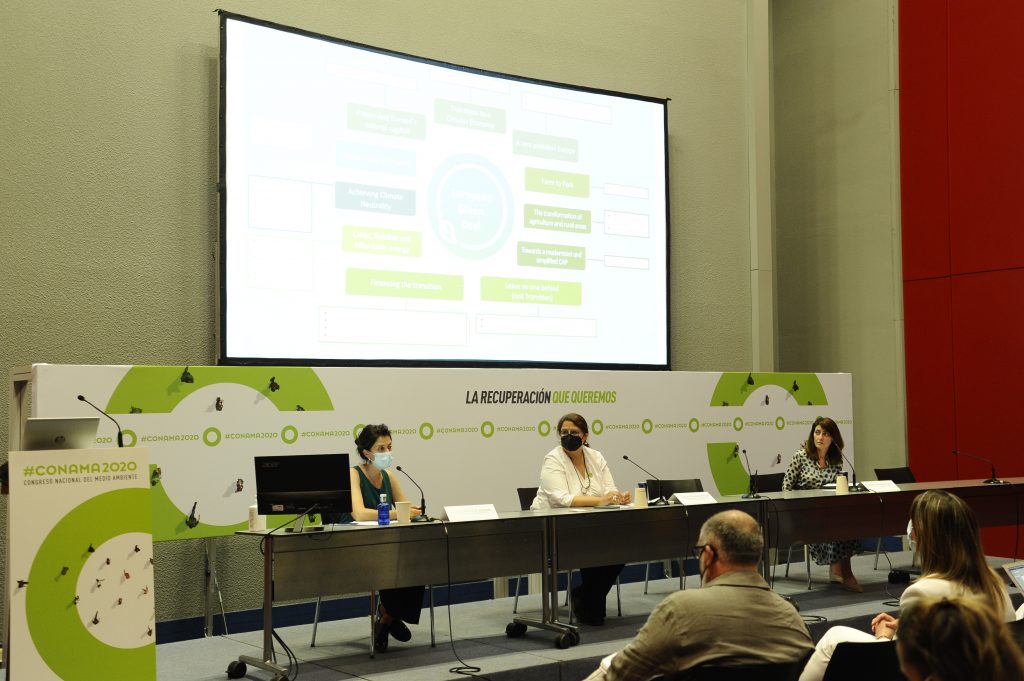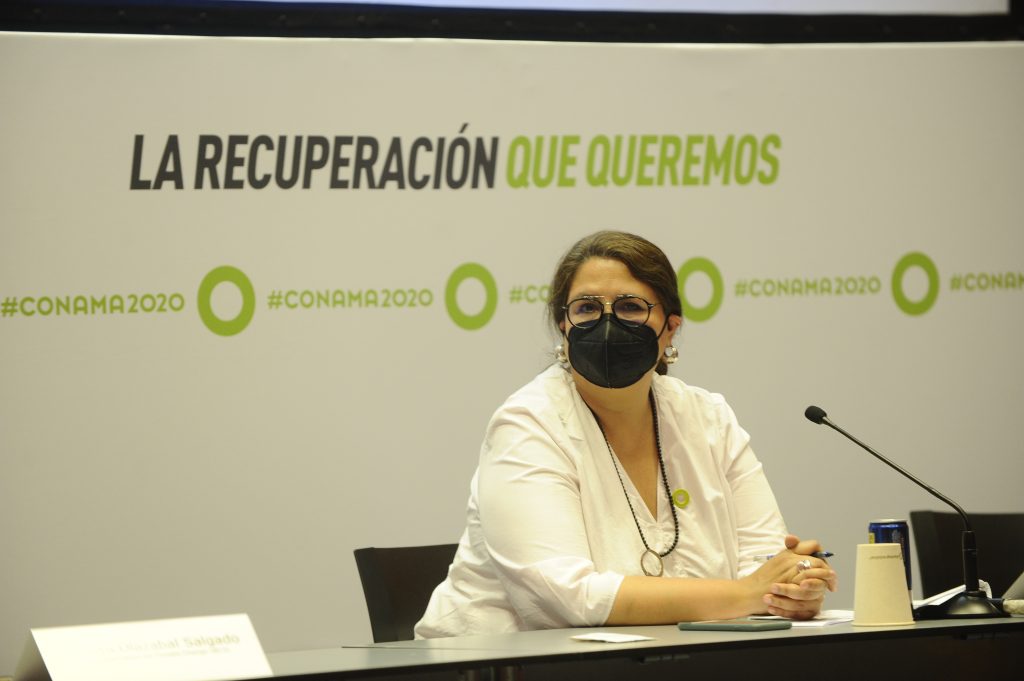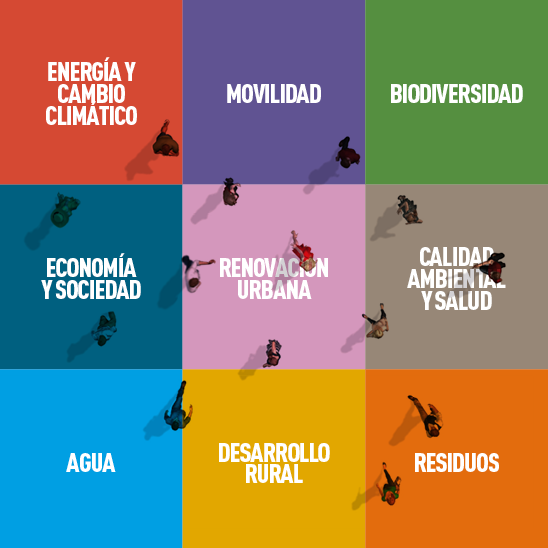
Our Masters’ Program Director and member of the ASA Directive Committee (Sustainable Architecture Association) , Carmen Mendoza-Arroyo, organised and moderated a specialist session addressing the new model for resilient and sustainable cities
“Cities are a source of opportunity for sustainable development.” Under this premise, on 31 May the seminar titled “Renovación Urbana: Hacia ciudades descarbonizadas, circulares y naturales” (‘Urban Renewal: Toward decarbonised, circular and natural cities’) moderated by the assistant director of International Relations at UIC Barcelona School of Architecture, Carmen Mendoza-Arroyo. The associate lecturer formed part of the seminar’s organising committee, which featured in the programme of the National Environmental Congress (CONAMA), held until 3 June in IFEMA’s North Convention Centre (Madrid).
Other speakers included Sonia Hernández Partal, deputy assistant director for Urban Policies at the Ministry of Transport, Mobility and Urban Agenda; Xavier Matilla Ayala, chief architect for Barcelona City Council; Lara Méndez López, mayor of Lugo and Marta Olazabal, researcher at the Basque Centre for Climate Change (BC3).
The participants discussed the new model for sustainable urban development, geared toward generating a new type of city that guarantees its inhabitants’ health by addressing aspects such as mobility, work, housing, decarbonisation, public space and the progressive incorporation of nature into our urban environments.

“The talks demonstrated, on the one hand, the importance of more self-sufficient cities and comprehensive methodologies that help us develop and implement the Spanish Urban Agenda. On the other hand, it was found that in order to apply the European Green Deal and other regional strategies in settings with different levels of development, it is important to incorporate socio-economic aspects and projections into climate change adaptation measures, thus ensuring that they are fair and equitable”, pointed out Carmen Mendoza-Arroyo.

